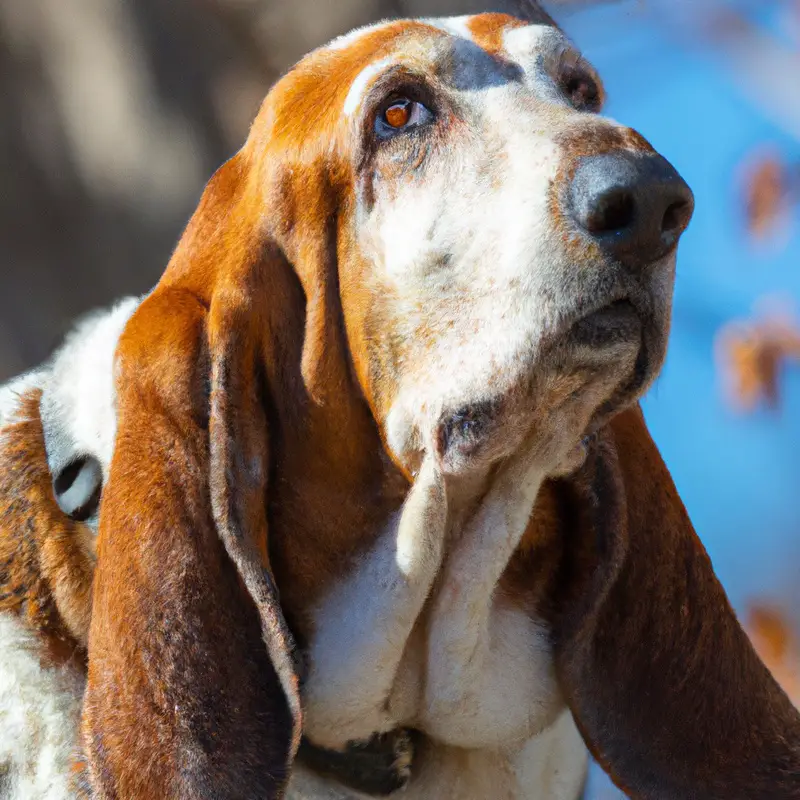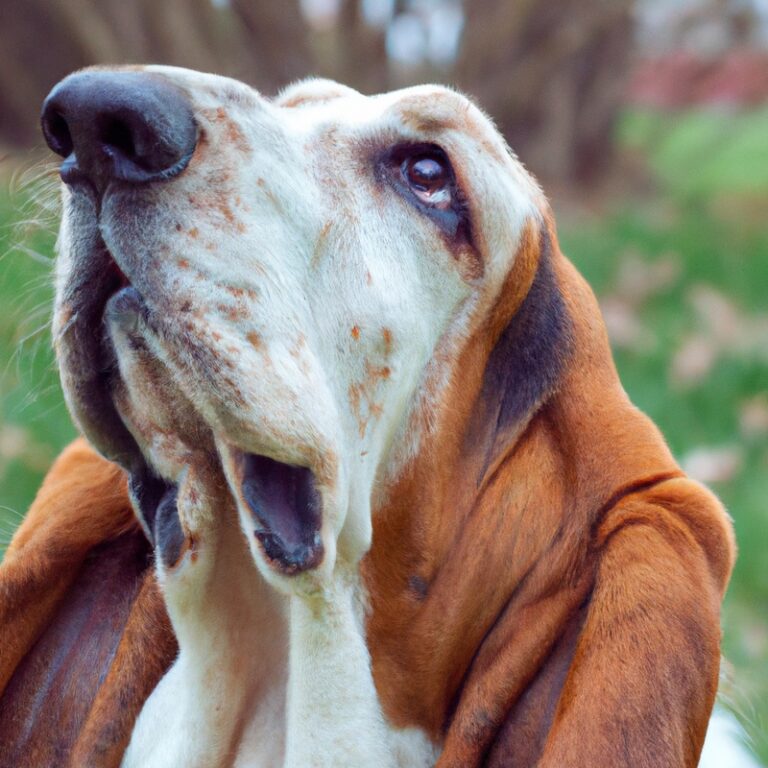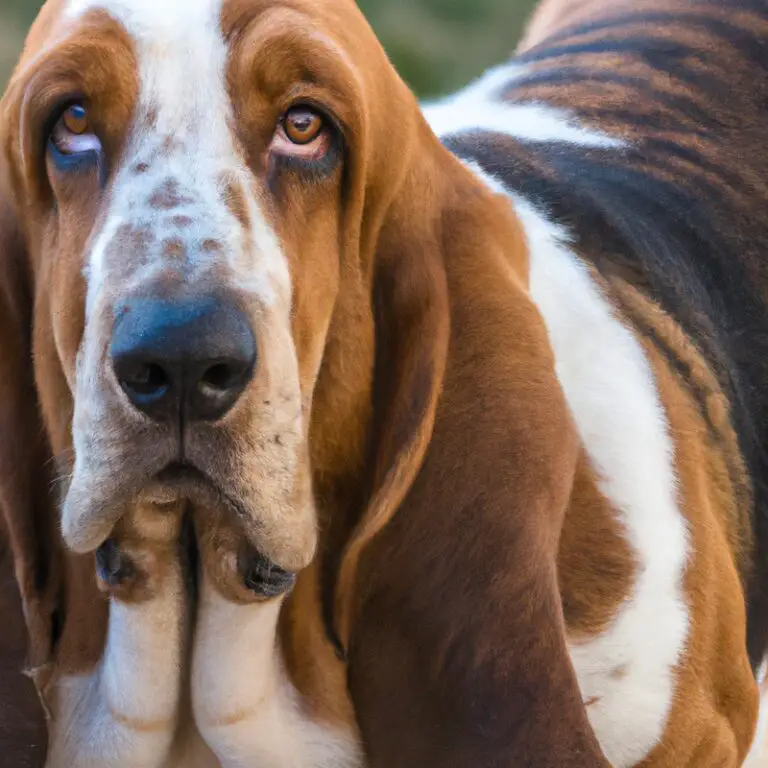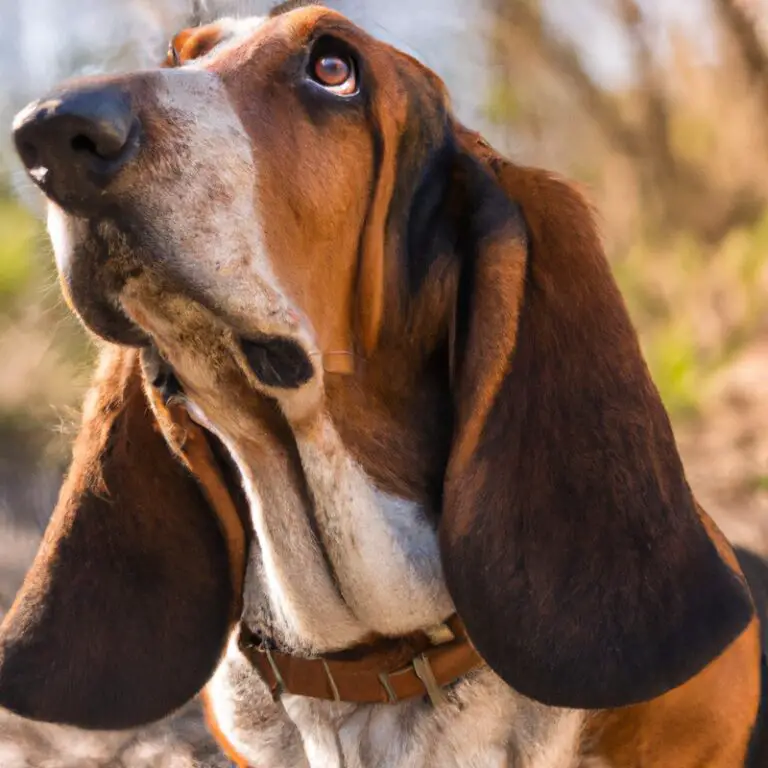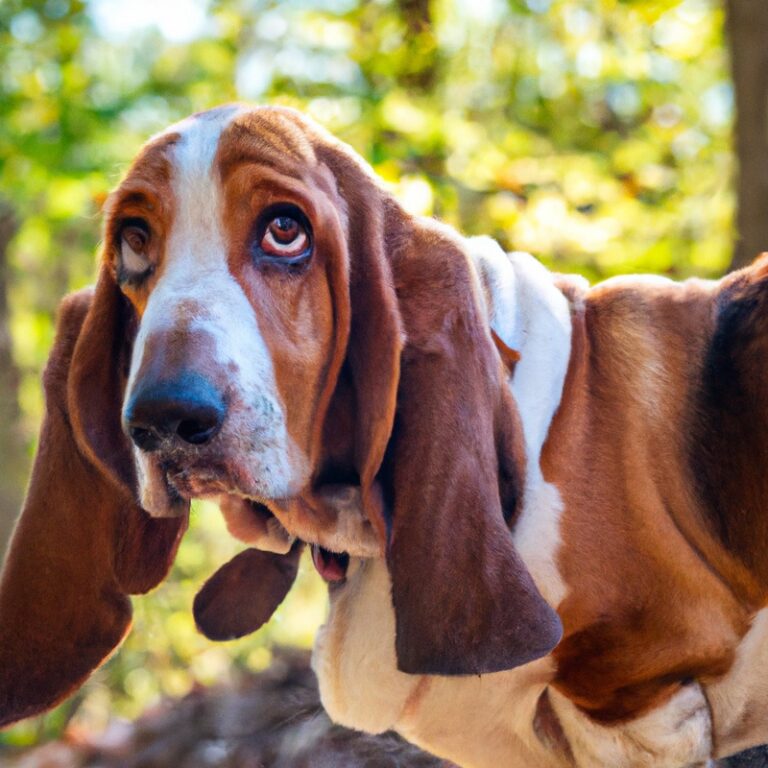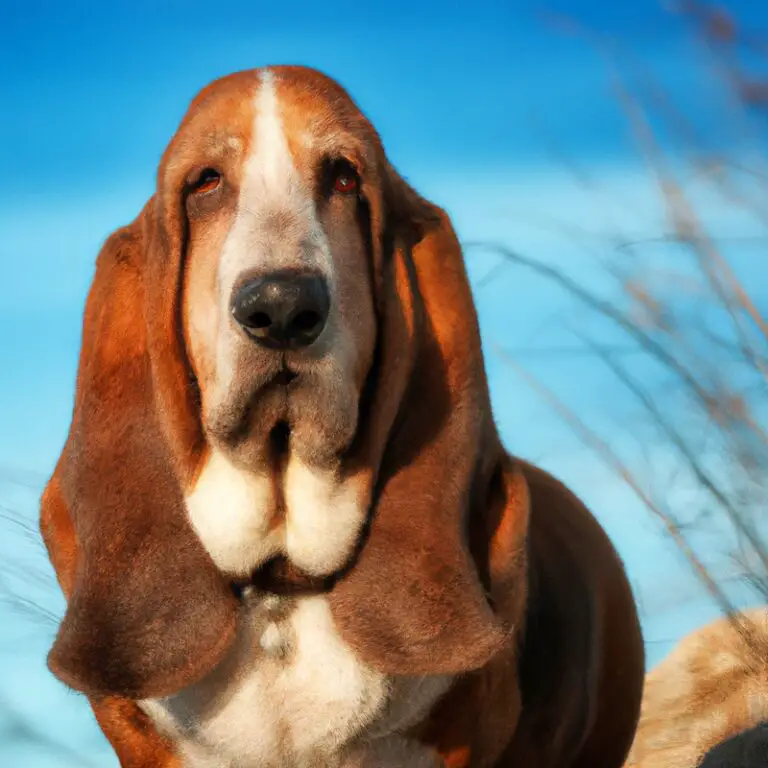Can Basset Hounds Be Trained For Herding Activities?
Key Takeaways:
- Basset Hounds are not typically suitable for herding activities due to their genetic predisposition as scent hounds.
- Basset Hounds have a strong sense of smell but lack the natural instincts and physical capabilities required for effective herding.
- While it is possible to train Basset Hounds for basic herding tasks, their success in herding activities is generally limited.
- If you are specifically looking for a breed for herding, it is recommended to choose a breed that has a natural herding instinct and physical agility.
Attention all dog lovers and enthusiasts! Have you ever wondered if Basset Hounds, with their adorable floppy ears and low-set bodies, can excel in herding activities? Well, prepare to be amazed as I dive into the fascinating world of Basset Hounds and their potential for herding.
As someone with a deep passion for canine behavior and training, I can confidently say that while Basset Hounds may not be the traditional choice for herding, they possess unique traits that make them intriguing candidates for this activity.
Join me as we explore their breed characteristics, history in herding, and the challenges and training strategies associated with honing their herding instincts. Plus, I’ll share some exciting alternative activities that can keep these scent-driven hounds mentally stimulated.
Get ready for a fascinating journey into the herding abilities of Basset Hounds!
| Pros | Cons |
|---|---|
| 1. Basset Hounds have a strong sense of smell, which can be beneficial for herding activities. | 1. Basset Hounds have a low energy level and may not have the stamina required for herding activities. |
| 2. Basset Hounds are intelligent and can be trained with patience and consistency. | 2. Basset Hounds have a strong prey drive, which may lead them to chase after livestock instead of herding them. |
| 3. Basset Hounds are generally good-natured and eager to please, making them adaptable to different training methods. | 3. Basset Hounds have a stubborn streak and may not always respond to commands during herding activities. |
The Herding Ability of Basset Hounds
Understanding the Breed Characteristics of Basset Hounds
Basset Hounds have distinctive characteristics that set them apart from other breeds. They are known for their long, droopy ears, wrinkled skin, and their short legs.
Bassets have a keen sense of smell, which is why they excel in tracking scents.
They also have a calm and gentle temperament, making them great companions. However, it’s important to keep in mind that Bassets can be stubborn and independent at times.
Understanding these breed characteristics will help in effectively training and interacting with Basset Hounds.
Exploring the History of Basset Hounds in Herding
Basset Hounds have a long history in the world of herding.
They were originally bred in France for their exceptional scenting and tracking abilities, which made them excellent at trailing game.
While they are not typically used for herding livestock like other breeds, their herding instincts are still present.
Bassets have a natural tendency to follow scents and track objects, which can be channeled and harnessed in various activities.
While they may not excel as traditional herders, they can participate in alternative herding sports or engage in scent work and tracking exercises to satisfy their herding instincts.
Assessing the Instincts and Traits of Basset Hounds Relevant to Herding
Basset Hounds possess certain instincts and traits that can be relevant to herding activities. Here are some characteristics of Basset Hounds that can be assessed for herding potential:
- Scent-driven: Basset Hounds have an exceptional sense of smell, which can make them highly effective in tracking and finding livestock.
- Determination: Basset Hounds are known for their determination and persistence, which can be advantageous when herding animals.
- Calm demeanor: Basset Hounds have a generally calm and composed nature, which can be beneficial in maintaining control and order during herding activities.
- Low prey drive: Basset Hounds typically have a lower prey drive than some other breeds, making them less likely to chase and harm livestock.
By understanding these instincts and traits, trainers can assess the potential of Basset Hounds for herding and design appropriate training strategies to enhance their herding abilities.
Challenges and Limitations in Training Basset Hounds for Herding
Understanding the Physical Limitations of Basset Hounds
Basset Hounds have certain physical limitations that can affect their ability to participate in herding activities.
Firstly, their short legs and long bodies make them better suited for slower-paced tasks rather than quick movements required in herding.
Secondly, their heavy build can also limit their agility and stamina.
Thirdly, their loose skin and droopy ears can sometimes hinder their vision and hearing, making it harder for them to navigate and respond to commands.
Despite these limitations, Basset Hounds can still participate in other activities that cater to their strengths and instincts.
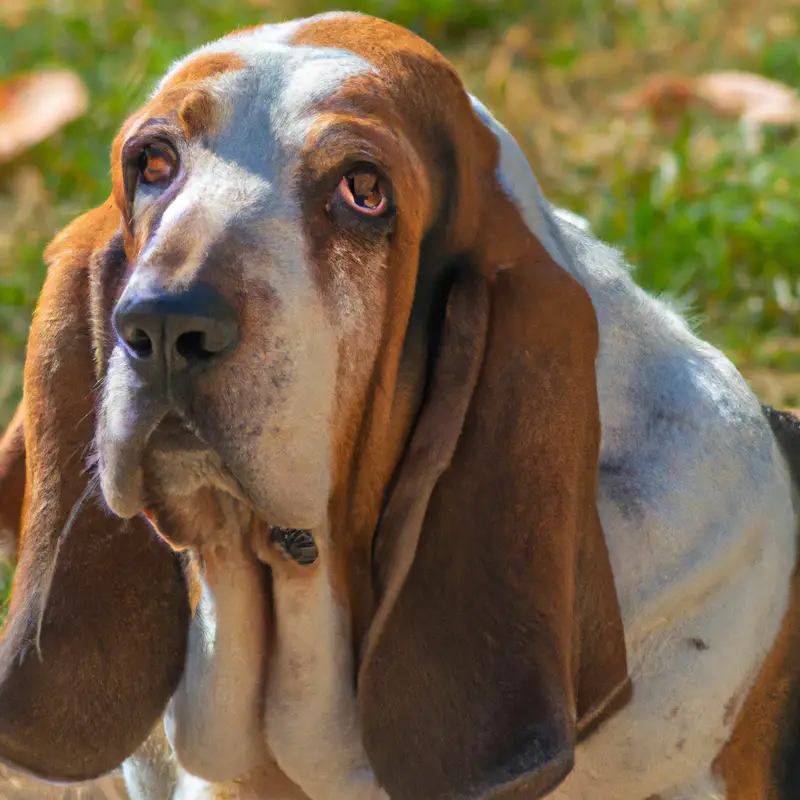
Addressing the Independent Nature of Basset Hounds
Basset Hounds are known for their independent nature, which can pose challenges when it comes to training them for herding activities. To address this, it’s important to establish a strong bond with your Basset Hound through consistent and positive reinforcement training methods.
Patience and understanding are key in working with their independent streak.
Providing mental stimulation and engaging activities can also help redirect their independent tendencies towards more desired behaviors. With the right approach and dedication, Basset Hounds can still excel in herding despite their independent nature.
Dealing with Basset Hound’s Scent-Driven Instincts
Basset Hounds have a strong scent-driven instinct, which can sometimes make herding activities challenging.
To deal with this, it’s important to understand and work with their natural instincts rather than trying to suppress them.
Here are some effective strategies:
- Channel their instincts: Instead of fighting against their scent-driven instincts, find activities that allow them to use their keen sense of smell, such as scent work or tracking exercises.
- Gradual exposure: Start by introducing them to herding commands in a controlled environment, gradually increasing the level of difficulty. This helps them focus on the task at hand while still satisfying their natural instincts.
- Positive reinforcement: Use rewards and praise to reinforce desired behavior during herding training sessions. This encourages them to associate herding activities with positive experiences and increases their motivation to participate.
- Patience and consistency: Remember that herding training takes time and requires consistent practice. Be patient and don’t get discouraged if progress is slow. With persistence and the right approach, Basset Hounds can learn to use their scent-driven instincts in herding activities.
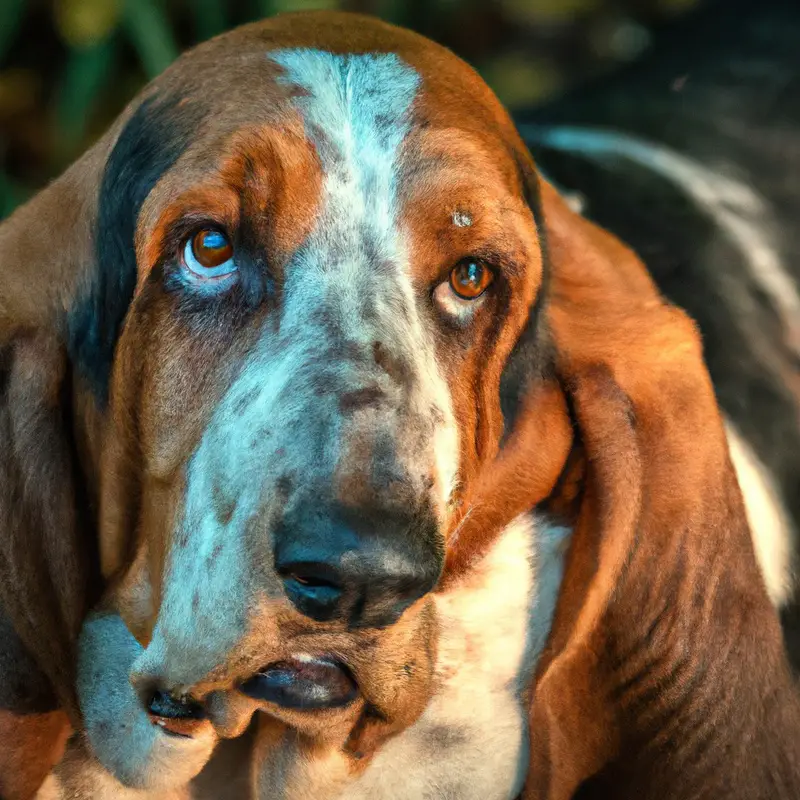
Training Strategies for Basset Hounds Interested in Herding
Establishing Basic Obedience and Recall Commands
Establishing basic obedience and recall commands is essential when training basset hounds for herding activities.
Start with simple commands like “sit” and “stay,” using positive reinforcement techniques such as treats or praise.
Consistency is key, so practice these commands regularly in different environments.
Gradually progress to recall commands like “come” by using a long leash or in a controlled, enclosed area.
Reinforce the desired behavior with rewards and gradually reduce the reliance on treats.
With patience and consistency, basset hounds can learn basic obedience and recall commands for successful herding training.
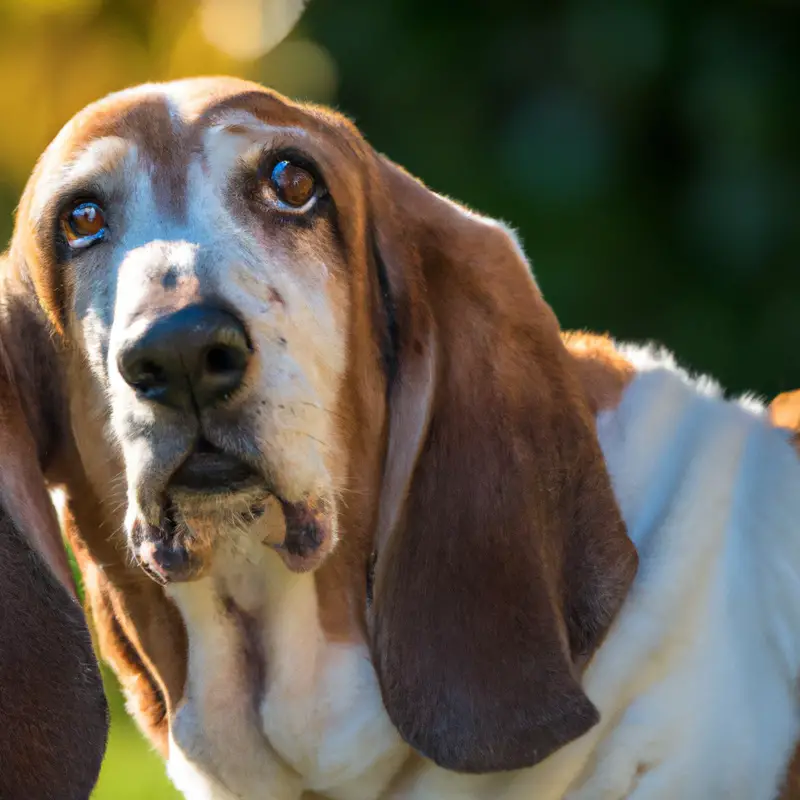
Introducing Basset Hounds to Herding Techniques and Commands
To introduce Basset Hounds to herding techniques and commands, it’s essential to start with basic obedience training. Focus on teaching them recall commands and reinforcing their ability to listen to you.
Once they have a solid foundation, gradually introduce them to herding techniques, such as directional commands and working with livestock.
Use positive reinforcement and rewards to encourage their natural instincts. Patience and consistency are key.
Seeking guidance from experienced trainers can also be helpful in honing their herding skills.
Utilizing Positive Reinforcement Techniques in Training
Positive reinforcement techniques are highly effective in training Basset Hounds for herding activities.
These techniques involve rewarding the desired behavior with treats, praise, or play.
By consistently providing positive reinforcement, such as treats and praise, when the Basset Hound exhibits the desired herding behaviors, they will quickly learn and associate these behaviors with rewards.
It is important to be patient and consistent, and to avoid punishment or negative reinforcement, as these can hinder the training process and create confusion for the dog.
By utilizing positive reinforcement techniques, you can successfully train your Basset Hound for herding!
Seeking
When seeking to train your Basset Hound for herding activities, it’s important to approach the process with patience and consistency. Start by understanding their breed characteristics and history in herding.
Assess their instincts and traits relevant to herding, such as scent-driven instincts.
Establish basic obedience and recall commands before introducing herding techniques and commands. Utilize positive reinforcement techniques and seek guidance from professional trainers or herding experts.
Remember to tailor the training to suit your Basset Hound’s individual needs and limitations.
Alternative Activities for Basset Hounds with Herding Instincts
Exploring Non-Livestock Herding Sports and Activities
While Basset Hounds may not be typically used for livestock herding, there are alternative non-livestock herding sports and activities that can engage their herding instincts.
One option is to participate in sports like Treibball or Doggie Push, where dogs push exercise balls into specific goals.
Another option is participating in dog agility training and trials, which provide mental stimulation and physical exercise.
Scent work and tracking exercises can also engage their tracking instincts.
Engaging in these activities can provide a fulfilling outlet for their herding instincts while ensuring they stay mentally and physically stimulated.
Engaging in Scent Work and Tracking Exercises
Engaging in scent work and tracking exercises can be a fantastic way to tap into a Basset Hound’s natural abilities and keep them mentally stimulated. These activities allow them to use their exceptional sense of smell, which is one of their strongest traits.
Scent work involves hiding treats or toys for your Basset Hound to find, while tracking exercises involve following a specific scent trail.
These activities not only provide mental stimulation but also help build a strong bond between you and your furry friend. It’s a win-win situation for both you and your Basset Hound!
Participating in Agility Training and Trials for Mental Stimulation
Participating in agility training and trials is a great way to provide mental stimulation for your Basset Hound with herding instincts.
Agility courses involve obstacles such as tunnels, jumps, and weave poles that your Basset Hound can learn to navigate.
This type of training helps to improve their focus, coordination, and problem-solving skills.
It also provides a fun and challenging activity for both you and your dog to enjoy together.
Plus, entering agility trials can add an extra level of excitement and competition to the mix.
It’s a win-win for keeping your Basset Hound mentally engaged and active.
Final Verdict
While Basset Hounds have a long history of being used for hunting and tracking, their herding abilities are limited.
Their physical limitations, independent nature, and strong scent-driven instincts make traditional herding training a challenge.
However, with careful training and alternative activities that cater to their herding instincts, Basset Hounds can still participate in various sports and exercises that provide mental stimulation and engagement.
It is important to approach training with patience, consistency, and positive reinforcement techniques to bring out the best in these lovable and loyal companions.

